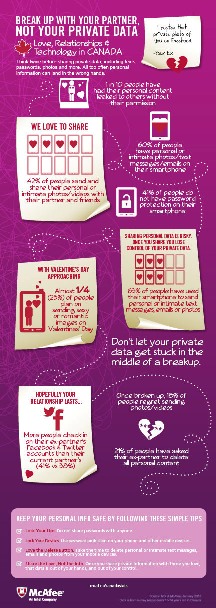Dating trends and digital devices are closely intertwined, and no more so than today, Valentine’s Day.
As the dating scene and social world moves from static websites to more mobile and location based activity, there’s a growing desire for greater security as well as sociability.
A new Canadian developed mobile app wants to take on both challenges at once: SinglesAroundMe, or SAM, has released a new dating application for popular smartphone platforms.
If you’re worred about revealing your exact location, you can now choose how much, if any, of that precise location you want to share; you can keep it exact, hidden or “approximate”.
It’s about increasing romantic serendipity without compromising safety, describes the Ottawa-based developer and company CEO, Chris Klotz.
Unlike other dating apps, SAM utilizes geographical-mapping to actually plot matching singles, based on their desire to share, meet or not.
The app is offered on the iPhone, Blackberry and Android devices with additional access via its mobile and websites.
Whether you are looking for love on this special day, or lucky enough to already be deep in it, another app may be of great use.
Loveagram is an easy-to-use mobile app that allows users to share pictures and voices, by “declaring their love” into an iPhone microphone. You can send snaps of flowers, chocolates or heart symbols, and then lovingly sing, shout or state your love out loud.
The Loveagram app also plays back the recorded declaration, post it to Facebook and Twitter, or email it directly to your sweetheart.
As Ming Ooi, Co-Founder of the development company Whatdelay Industries, explains: “We just wanted a way to record an old fashioned love telegram for your loved ones. And what better time to launch than Valentine’s Day?”
That sentiment surely has the spirit of the day in its heart, but perhaps not on its mind.
Sadly, Valentine’s Day is a day to be particularly watchful for any potential fraud schemes coming from dating sites and mobile devices.
Online protection services company iovation sees way too much fraudulent and abusive transactions on online dating websites, including credit card fraud, spamming, scams and solicitations, identity mining, profile misrepresentation and harassment.
It also sees that some 15 per cent of all transactions and activities on online dating sites originated from mobile devices in 2012.
“As consumers become more comfortable with using mobile devices in online dating, cybercriminals will also expand their use of mobile phones and tablets to exploit others wanting to make romantic connections,” warns Molly O’Hearn, Vice President of Operations at iovation.
Scammers are one issue on Valentine’s Day, but what becomes of the broken-hearted?
They get mad and even, it seems.
McAfee Canada is warning about the dangers of sharing personal data in a relationship, and it is documenting how breakups can lead to privacy leaks online.
“People need to be more informed about the consequences of sharing so much private information with their partners and friends,” says Brenda Moretto, Canadian Consumer Sales Manager at McAfee Canada. “Sharing passwords might seem harmless, but it could and often does result in critical personal information falling into the wrong hands and landing in a public platform for all to see.”
It’s the digital revenge of the ex, McAfee says, noting that while 97 per cent of us believe our data and revealing photos are safe in the hands of our romantic partner(s), one in ten adults have had some personal content exposed to others without their permission, usually after a nasty break-up.
It seems necessary for 21 per cent of those in such a situation have even asked their ex-partner to delete all personal content from online repositories.
McAfee goes on to report that some people who have had personal content leaked online hired an attorney and took legal actions to recover their information and have embarrassing photos removed from websites (about 11 per cent).
About the same number have actually broken into a former partner’s email.
And that’s like, where ever they are.
-30-
submitted by Lee Rickwood






